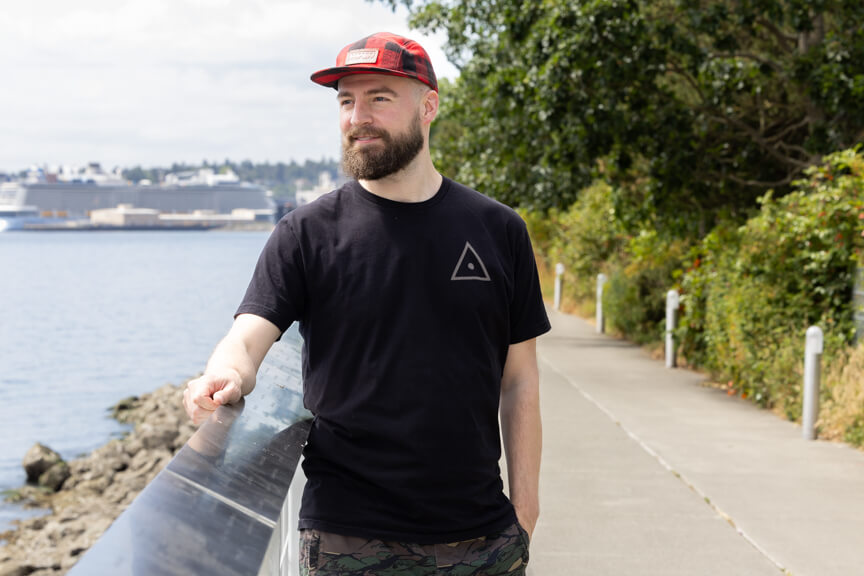Nick’s Blog
06.26.25
Category: Survivor Voices
Type: Blog
06.26.25
Category: Survivor Voices
Type: Blog
 By the time I engaged in counseling with KCSARC, I had close to a decade and a half of experience brute-forcing my way through dealing with sexual assault. I took pride in the degree to which I could let waves of profound distress and psychological turmoil wash over me, all while seemingly not losing my footing. Recently, along with those waves of distress, the ground under my feet started to shift: a cross-country move, financial uncertainty, a new job, all new social connections to navigate, and the loss of most familiarity and routine.
By the time I engaged in counseling with KCSARC, I had close to a decade and a half of experience brute-forcing my way through dealing with sexual assault. I took pride in the degree to which I could let waves of profound distress and psychological turmoil wash over me, all while seemingly not losing my footing. Recently, along with those waves of distress, the ground under my feet started to shift: a cross-country move, financial uncertainty, a new job, all new social connections to navigate, and the loss of most familiarity and routine.
During this unsteadying set of circumstances, many things that put me on edge or approximated elements of my sexual assault became almost unbearable to navigate: nightlife settings, intoxicated people, unfamiliar surroundings. While navigating so many life stressors, the mental reserves I would typically draw on to make it through were simply exhausted. I can remember nights out that started with the hope of enjoying my new city but ultimately left me drowning in a panic, desperately wanting to go home. I was told by loving and rightfully concerned people that I wasn’t doing well and needed to pursue counseling. In my search for options, I found KCSARC’s website, which enabled me to finally connect to the resources I needed.
While exploring the KCSARC website, I learned that about one out of six individuals who pursue their services are male. While men require and use these services, we have not been very vocal or visible about having benefited from their availability. When I first engaged with KCSARC, the far majority of individuals vouching for the efficacy of the center’s services were women. One of my first reactions to this was an insecure inkling that maybe there was something wrong with me for being a man but still needing to pursue this counseling. Why were so few men speaking up? Should I be ashamed?
Part of the social conditioning most men receive is that we can evaluate our adequacy or worthiness as a man by how well we match to rigid norms. When we perceive that we don’t match those norms, we start asking questions that guide us into shame: What value do I hold as a man if I have experienced sexual violence? What if the psychological consequences of that experience are too difficult or confusing for me to sort through alone? If I can’t white-knuckle my way through the resultant deeply unsettling emotions, am I weak and without sufficient willpower? The deeper we go into the shame spiral, the more isolated we become, fearing that any attempt to connect with another person regarding our experiences will expose us as inadequate or lacking. This isolation is used to hide away our secret reality that feels too dark to acknowledge. This isolation can also lead to the type of desperation by which we lose men to suicide.
If the stakes are known to be that high, what are men able to do for themselves?
I am writing this during Men’s Mental Health Awareness Month, which occurs annually in June. My intention is to remind men who have experienced sexual assault that they are not “the only one” and that there are resources at the ready that match their needs. I want to encourage these men to make this trusting leap and take the action that will allow them to see their path forward more clearly.
KCSARC’s 24-hour Resource Line is available 24/7 with trained advocates ready to listen and provide free, confidential support and information to help you determine next steps. Whenever you’re ready, call 1.888.998.6423.
Every survivor’s healing journey and recovery is unique and personal. The thoughts and experiences shared by our Empowered Voices members are personal to the author and may not reflect the experiences or journey of every survivor. The views expressed are not intended to represent KCSARC’s organizational views.